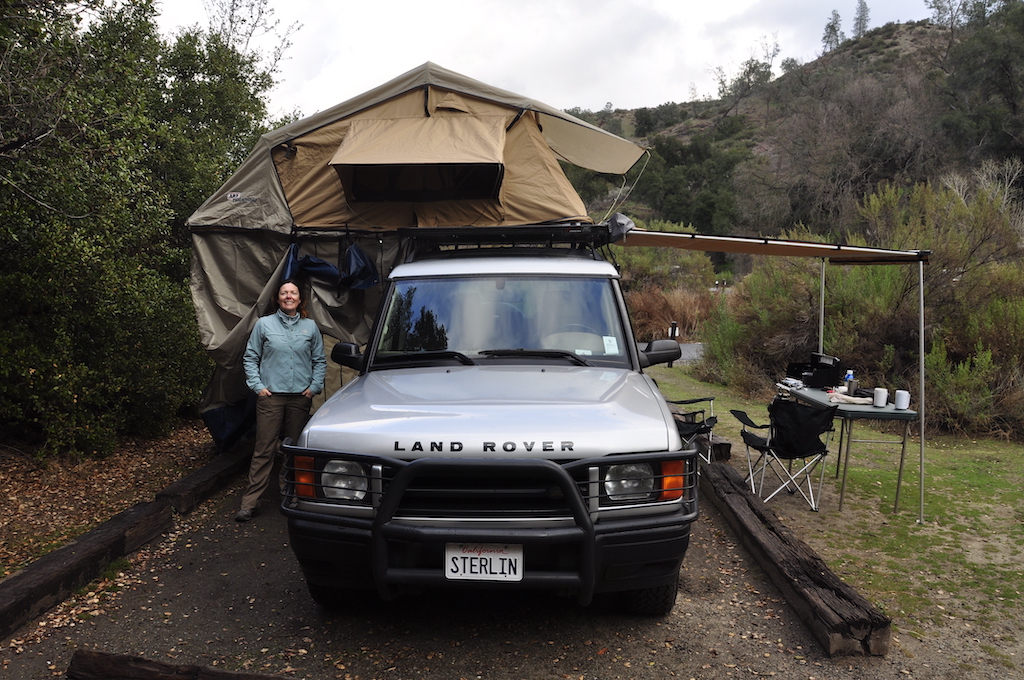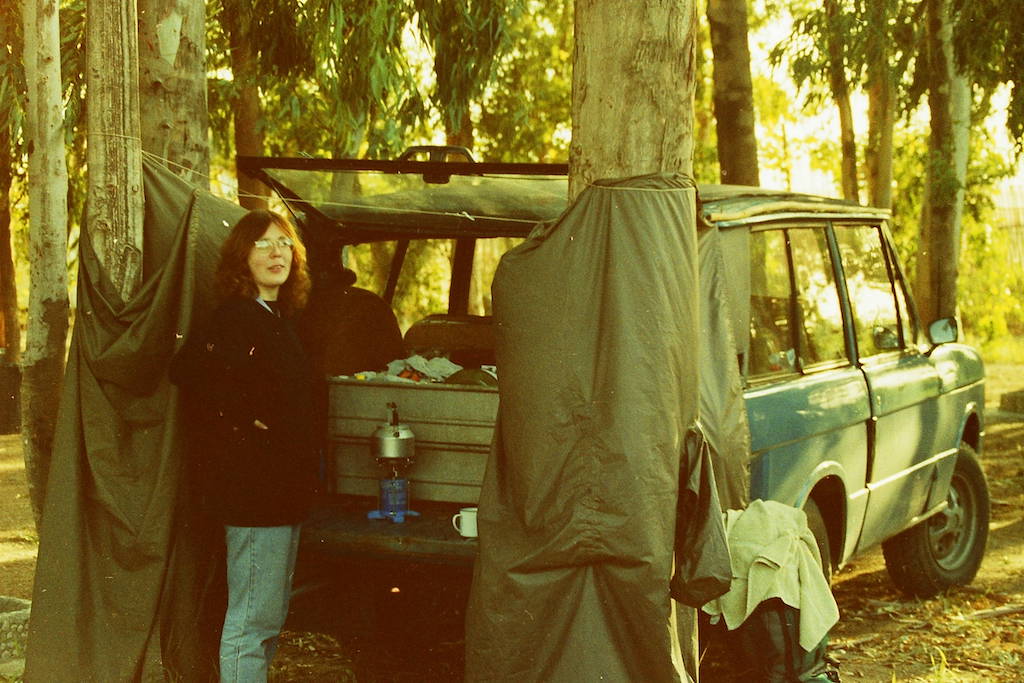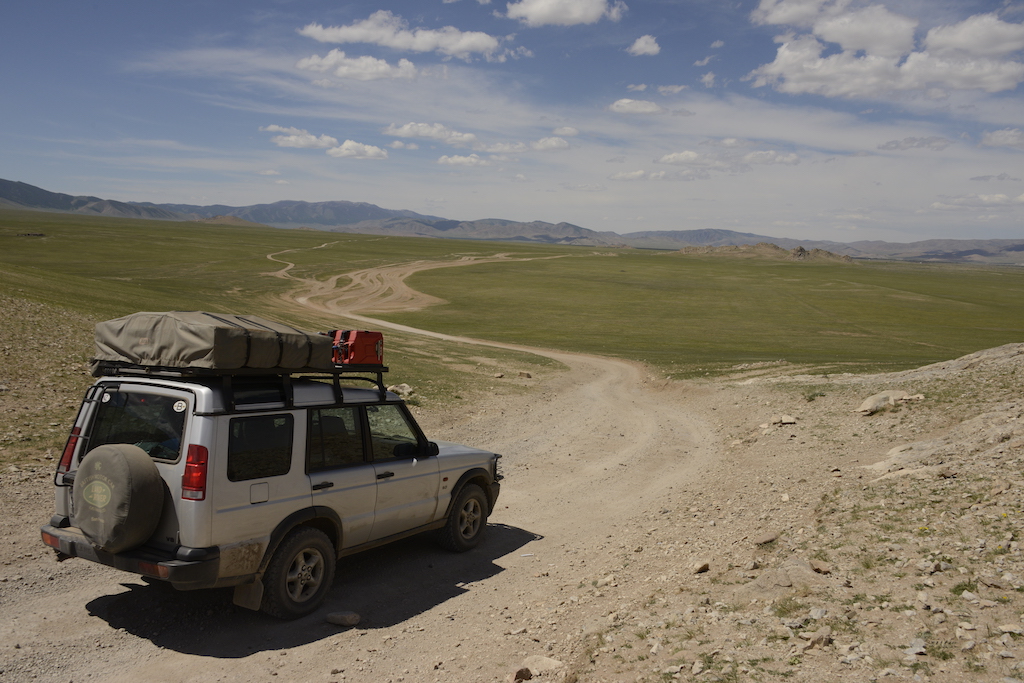
We love to travel, to places near and places remote. This includes high mountain tops, walks in remote areas, sea voyages to some of the most isolated locations on earth, quaint old villages and leaving the pavement in our vehicles. Driving is just one way to get to those places, one that has gained in popularity over the last decade. In fact, this style of travel now has its own word; Overlanding. Here we try and describe what Overlanding means to us. We are not attempting to define Overlanding, will leave that to others. Rather we want to share our style of travelling and highlight what is important to us when we think about Overlanding. A warning upfront, this article is more academic and esoteric than it probably needs to be. Please don’t take what we say too seriously, as it is merely our musing on the matter. Others will likely have different descriptions, which are just as valid and better applicable to them.
As with many things in life, our history influences us and our take. This is the case for Overlanding. In the early 1990’s we traveled from London to Cape Town, mainly by car (including hitch-hiking), but we also took trains, buses and the occasional airplane. This was our first taste of Overlanding and we have incredibly fond memories of this first adventure. It was some 20 years later that we packed up our worldly possessions for a second time, and literally drove half way around the world in our wonderful and very much loved Land Rover Discovery named Sterlin. These were big adventures. This trip really cemented that we like to travel independently in our own vehicle. This is the reason we purchased Molly, our current adventure truck. Molly is purpose built for Overland travel. She will allow us to continue to travel to remote places but with the added advantage of some nice creature comforts. Overlanding definitively does not have to uncomfortable.
A great place to start for a definition is from Overland Journal. This is a high quality print magazine intended for those interested in vehicle-based adventure travel. Overland Journal has an excellent description of What is Ovelanding? It is a long description with quite a broad definition. It can be shortened and summarized as:
Vehicle-supported, self-reliant adventure travel, typically exploring remote locations and interacting with other cultures.
Overland Journal, Scott Brady.
This shorter definition is a great starting point to describe our travel style. There are changes we would make to reflect our specific Overlanding style:
- Change Vehicle Supported to Vehicle Dependent, like cars, trucks and motorcycles. It is very difficult to get to remote places without support from a vehicle. So in a way, all remote travel, almost by the definition, has to be vehicle supported. For us, the reliance and trust we place on our truck is a major component of the adventure. In the case of Molly, it is also our home on four wheels. We want to elevate the role of the vehicle. It is not simple “support”, but we depend on it.
- Change self-reliant to autonomous. This is a subtle change, and is intended to reflect an element of our style of travel that is important to us. Our travel is less about being capable and confident in our own abilities and knowing we can venture out and not needing to rely on help from others. The early polar explorers had to be self-reliant, because they were too far away from help for any such help to be meaningful. We are not polar explorers. Of course we want to have the necessary and useful skills to allow and enjoy our travels, but we are also not afraid to ask for help when we need it. For example, failure of our vehicle in the middle of nowhere might mean a significant delay to our travels, but that is fine, we will just wait for the replacement part or a tow truck to show up. What is important to us, is the luxury to make our own decisions, control our adventure and be as independent as we can in these decisions. This is a bit like being a small nation state, of course the nation wants to be independent and to control itself, but that does not mean it has to be self-reliant. The best word we can think of to capture this thought is autonomous.
- Drop the idea of exploration. We love to go to places we have not been to before and to see new cultures. But we do this as adventure travelers and not as scientists or explorers. We are curious and want to seek out new experiences, however our focus is more about fun and adventure, so the term exploration is a little too strong for what we actually do.
- Change locations to places. Unfortunately the term location is typically used to geo-locate or identify a spot somewhere on the planet. Places as a term is more general, and better describes contiguous space that has some unifying feature. It is a little more abstract and it is a little more suitable.
- Change other to different. Another small change. We are less interested in other cultures that are like our own, rather we wish to interact with others that are different. This is everything from visiting cultural sites to gain a glimpse of other cultures to buying bread from the local shopkeeper. Different better represents the curiosity we have and the part of the reason we go to remote places. As a note, remote places does not imply that these places are in different countries than where we live. Having said this, we have and will continue to travel internationally and thus we are more likely to encounter different cultures.
Based on the above five changes. Our definition becomes:
Vehicle-dependent, autonomous adventure travel, typically to remote places and interacting with different cultures.
Other considerations of the definition.
- Overlanding can be as much about the journey as it is about the destinations. If the objective is to drive from Prudhoe Bay to Ushuaia along the Pan American highway, it is very easy to say the journey is the primary objective for the travel with the destinations for interacting with different cultures being secondary. For us, the journey is just as important as the destinations and it is hard to do one without the other. Both are all part of the fun, and we do not wish to elevate one over the other.
- Some consider the term Overlanding for be reserved to travels that last months or years and that cross international borders. We do not need to add these qualifiers to our definition, as both concepts are already captured by the reference to remote places and different cultures. Remote places implies time needed to get there and different cultures implies different countries and thus border crossings. It is however tempting to throw “extended” into the mix. It has been left out intentionally, as it is a consequence of remote places and different cultures, rather than a reason in itself to be Overlanding.
- Further, some may claim that it is important to travel slowly and (metaphorically) smell the roses along the way. While we typically travel slowly, when needed, we are happy to endure long driving days with short stops. We therefore choose to demote time as a key concept in defining our Overlanding. We strive to avoid making fixed date commitments to provide a stronger sense of freedom and allow more flexibility in travel plans. This is not always possible, for example, in China we needed to obtain our visa in advance and it started on a fixed date at a fixed location. Having no fixed dates or commitments we can adjust plans at the last minute or accommodate unexpected situations, like our vehicle breaking down and having to wait for it to be fixed. This “no fixed dates” is a strong element in our style of Overlanding travel.
- While not explicitly stated, it is important to us that we travel in a sustainable and responsible manner, with the least amount of environmental impact. This of course is true of other styles of travel and not limited to Overlanding. In mountaineering there is the principle of “Leave No Trace” and in the four wheel drive communities “Tread Lightly” embodies this principle. Our basic philosophy align with, “take only photographs and leave only footprints”. We also try to buy locally to support communities. We try to do our bit.
- Taking off after work on a Friday to go camping for the weekend on off-road trails is Overlanding for some. We love doing this, we just call this type of activity “camping”. Because we call it camping, does not mean that Overlanding is therefore more worthy, it is not. They are just different things to us, and so we use different words to describe them. It is also absolutely fine for others to describe a weekend camping trip as Overlanding.
Hopefully the above sheds some light on our style of Overlanding.



